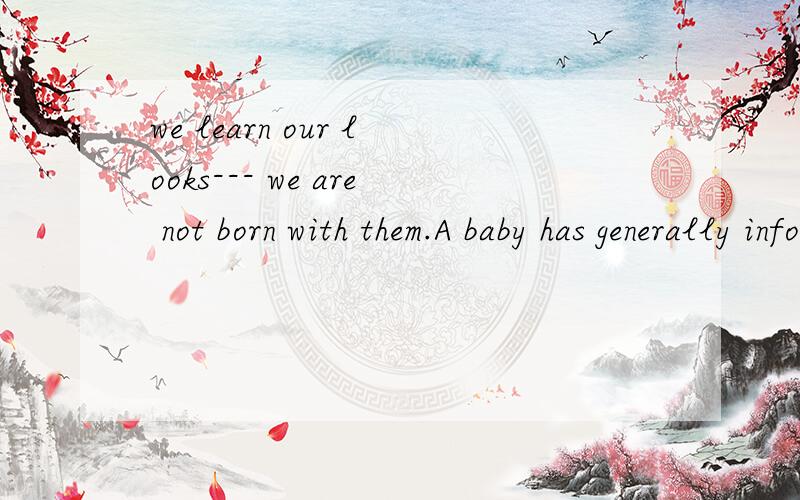we learn our looks--- we are not born with them.A baby has generally informed face features. A babywe learn our looks--- we are not born with them.A baby has generally informed face features. A baby, according to Birdwhistell(人名), learns where t
来源:学生作业帮助网 编辑:作业帮 时间:2024/04/27 17:19:44

we learn our looks--- we are not born with them.A baby has generally informed face features. A babywe learn our looks--- we are not born with them.A baby has generally informed face features. A baby, according to Birdwhistell(人名), learns where t
we learn our looks--- we are not born with them.A baby has generally informed face features. A baby
we learn our looks--- we are not born with them.A baby has generally informed face features. A baby, according to Birdwhistell(人名), learns where to set the eyebrows by looking at those 这句话是什么意思
we learn our looks--- we are not born with them.A baby has generally informed face features. A baby, according to Birdwhistell(人名), learns where to set the eyebrows by looking at those around- family and friends. 这句话是什么意思
we learn our looks--- we are not born with them.A baby has generally informed face features. A babywe learn our looks--- we are not born with them.A baby has generally informed face features. A baby, according to Birdwhistell(人名), learns where t
翻译为:我们的长相是学来的,而不是与生俱来的.小孩子有一个大体有依据的脸型特征.根据Birdwhistell的说法,婴幼儿通过观察他旁边的人——家人和朋友来学会在哪里设置自己眉毛长的位置.